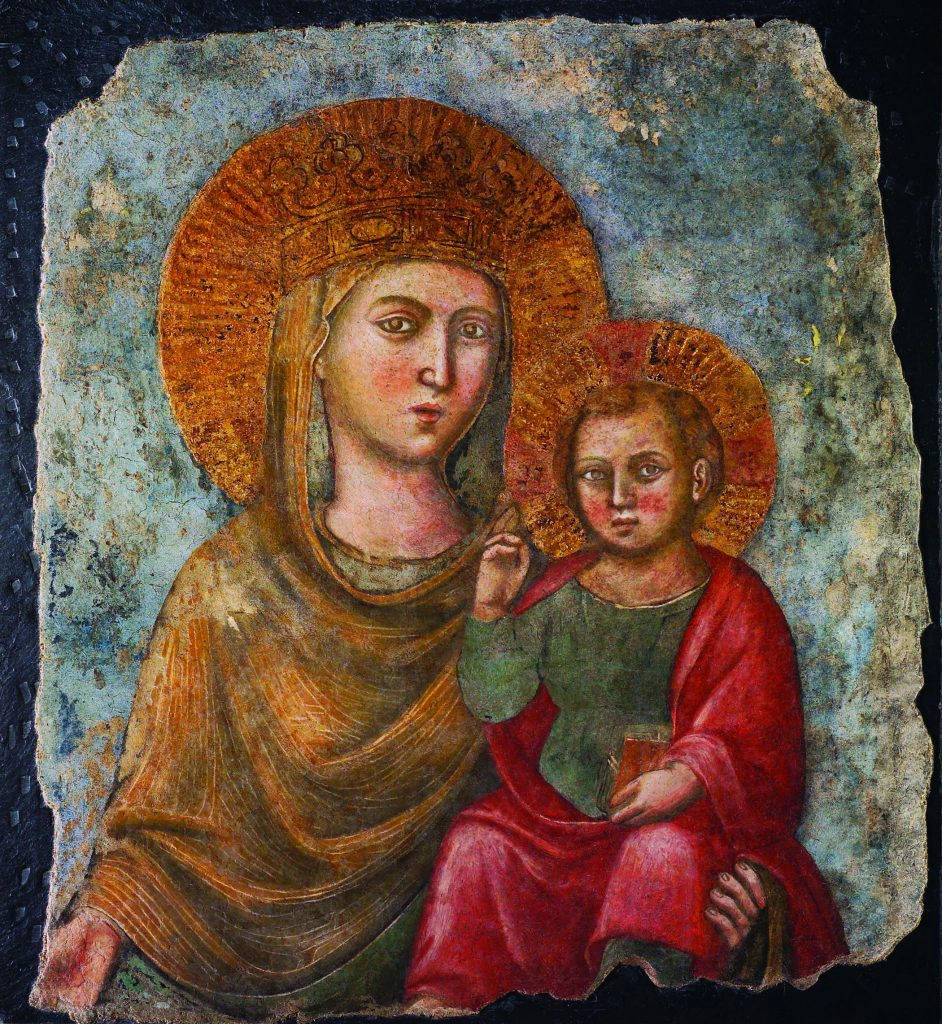 Fr Matthew Charlesworth SJJesuit PriestSociety of JesusJesuit priest working in Southern AfricaFr. MatthewCharlesworthSJ
Fr Matthew Charlesworth SJJesuit PriestSociety of JesusJesuit priest working in Southern AfricaFr. MatthewCharlesworthSJ
 Saturday of the 5th Week of Easter
Saturday of the 5th Week of Easter
Date: | Season: Easter | Year: C
First Reading: Acts 16:1–10
Responsorial Psalm: Psalm 100:1b–3, 5
| Response: Psalm 100:2a
Gospel Acclamation: Colossians 3:1
Gospel Reading: John 15:18–21
Preached at: the Chapel of the Most Holy Name, Kolvenbach House in the Archdiocese of Lusaka, Zambia.
My friends in Christ,
There is a moment in today’s first reading that should make us wonder. Paul has been traveling, preaching, discerning. And then, one night, he has a vision: a man of Macedonia stands before him and pleads, “Come over to Macedonia and help us.”
It is one sentence. Seven words. And yet it changes the entire direction of Paul’s mission. He crosses into Europe. The Gospel enters new territory. But more than that—it is a moment of deep discernment, of radical availability to the Spirit. Paul’s journey wasn’t just about geography; it was about hearing the cry of those in need. But how did Paul know that this vision was from God? He had spent time in prayer and discernment, seeking the guidance of the Holy Spirit. We, too, must cultivate a spirit of attentiveness, listening for the still, small voice of God in our lives.
Paul could have ignored it. He had other plans. Other places to go. But the vision was not just about travel—it was about attentiveness. The man’s cry was a human cry, and the Spirit confirmed it was also God’s.
Are we listening for such cries?
Here in Zambia today, the Macedonian plea sounds different but no less urgent:
- Come over and help us, says the single mother in a township with no clinic nearby.
- Come over and help us, says the unemployed graduate who dreams of building a just nation.
- Come over and help us, says the whistleblower who is silenced for speaking truth.
Do we hear it?
And more importantly—do we respond?
Today our attentiveness to the Spirit takes on a particular resonance. For today is also the 17th Day of Prayer for the Church in China, a day established by Pope Benedict XVI to unite ourselves in prayer with our brothers and sisters in China, that they may persevere in faith and witness. Let us remember them, and ask for the intercession of Our Lady of Sheshan, that the light of the Gospel may shine brightly in their lives.
Furthermore, for our Jesuit brothers and sisters, today is the feast of Our Lady of the Way. Mary, under this title, is a patroness of discernment, guiding us on the path that her Son illuminates. May we, like St. Paul, be attentive to the promptings of the Holy Spirit, and like Mary, be ever open to God’s will in our lives.
In the Gospel, Jesus prepares his disciples with sobering words: “If the world hates you, realize that it hated me first.” This isn’t just about challenging power structures; it’s about a fundamental clash of values. The world values success, comfort, and self-preservation. The Kingdom values love, sacrifice, and service to others. When we choose the latter, we inevitably challenge the former.
Why does the world resist the Gospel? Not simply because it threatens political power. It is because the values of the Kingdom run against the current of the world’s logic.
The world says:
- Protect yourself.
- Take what you can.
- Silence your conscience.
- Align with the powerful.
But Jesus says:
- Lay down your life.
- Feed the hungry.
- Bless the peacemakers.
- Welcome the stranger.
This is not a minor disagreement. It is, in fact, an inevitable collision course. And so the world will always resist those who live the Gospel fully—not just because of what they say, but because of who they are.
And yet this is precisely what we are called to be: people of contradiction. People of the Cross, embracing suffering and sacrifice as a path to new life. The Cross challenges our understanding of power, success, and happiness. It reminds us that true greatness lies not in dominating others, but in serving them.
So what does this mean for us here and now?
It means that like Paul, we must be a discerning Church—listening for where the Spirit is leading, especially when that direction challenges our comfort and surprises us.
It means that like Jesus, we must be ready to be misunderstood, even hated, because our witness reveals a different way of being human.
And it means this: we must act.
So today, I invite each of you to take one concrete step to live out your faith more courageously:
- Support a local organization working to end corruption or gender-based violence.
- Speak up when someone is mistreated in your community.
- Mentor a young person who’s lost hope.
- Choose honesty when it costs something.
These are not grand gestures. But they are Gospel actions. And in them, we say to the world: We belong to Christ.
I invite each of you to identify one concrete action you will take to live out your faith more courageously. Perhaps it’s supporting an organisation in their fight against corruption, or advocating for something you believe in in your community. Let us not be afraid to be agents of change, to be bearers of hope, to be witnesses to the transformative power of the Gospel.
Let us pray:
Lord Jesus, You heard the cry of the poor and responded with your very life. Teach us to listen, to discern, and to act. In Zambia today, give us ears to hear the silent pleas of those denied dignity. Strengthen those who speak truth in a climate of fear. Bless those who work for justice, even in small and hidden ways. We also remember our brothers and sisters in China, entrusting them to the loving care of Our Lady of Sheshan. And we ask for the grace to follow the Way of your Mother, that we may always be open to your will.
Make us a Church not afraid to be rejected, because we follow you. And may our suffering, united to yours, become the seed of new life.
We ask this through Christ our Lord. Amen.
Friends, the world does not need more noise. It needs witness. It needs Christians who are willing to cross the sea, change direction, and answer the cry: “Come over and help us.” Let that be us.
Christ has called. The Spirit has spoken. Now let us go.
Our Lady of the Way
The title “Our Lady of the Way” (Madonna della Strada) comes from a beautiful picture painted in Rome in the fifth century. This lovely fresco, to which Saint Ignatius of Loyola, the founder of the Society of Jesus, was devoted — and before which he and his early companions used to assemble when first they came to the Eternal City — is now kept in the Church of the Gesù, in Rome, the main church of the Society of Jesus.

Prayer to Our Lady of the Way
Our Lady of the Way,
stay with us when we grow weary of the journey;
for the road is long and our hearts are weak.
Strengthen us with the patience and fortitude to continue on in pursuit of a whole and just world; in pursuit of a whole and just self.
Come, be our guide.Our Lady of the Way,
lead us when we cannot see the path.
Take us by the hand as a Mother; whispering comfort in our ears, steering us through the dark, guarding us from the terrors of the night.
Infuse us with your courage, with your refusal to bow to fear and the unknown.
For in you we find the Light that moves us forward.Our Lady of the Way,
show us the mystery you revealed to Ignatius so many years past: the mystery of letting go.
That we would not cling to our packs nor our sandals nor our cloaks but release to the path what the path requires.
Because for all that we lay down, we pick up something greater; we pick up freedom.Our Lady of the Way, show us the way.
Amen.
Source: https://sj.mcharlesworth.fr/homilies/2025-05may-24-yc-et-05/
This homily is shared for personal and pastoral use. Please attribute the author and do not alter the meaning when quoting. If you wish this homily to be translated - there is an option on the website which will allow you to translate it into the language of your choice.
Licenced under a Creative Commons Attribution-NonCommercial-NoDerivatives 4.0 International (CC BY-NC-ND 4.0) license.
The author does not speak for the Society of Jesus or for the Catholic Church.
In preparing this homily, I consulted various resources to deepen my understanding of today’s readings, including using Magisterium AI for assistance. The final content remains the responsibility of the author.




